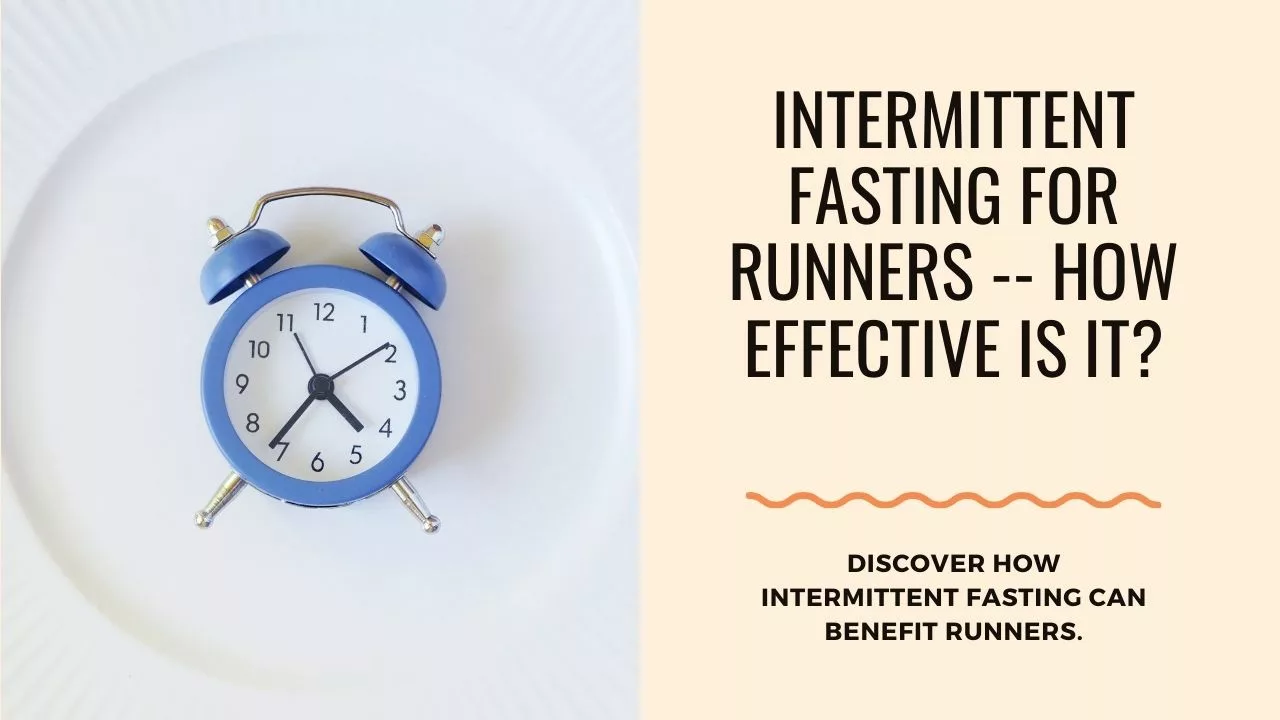You might have heard of intermittent fasting. After all, it is a popular trend among those who wish to lose excess pounds but don’t want to make drastic changes to their diet. But how about intermittent fasting for runners? Is it also a popular trend? Is it good in the long run (no pun intended)?
Intermittent Fasting for Runners — How Effective Is It?
As mentioned, IF has gained immense popularity in recent years. It is touted for its purported health benefits and efficacy in weight management.
However, when it comes to athletes, particularly runners, the application of it raises questions about its compatibility with endurance training and overall performance.
As runners rely heavily on energy stores and nutritional balance, the adoption of IF requires careful consideration of its potential impacts on long-term health and athletic goals.
This form of eating involves cycling between periods of eating and fasting, with various protocols dictating the duration and frequency of fasting periods.

Common approaches include
- the 16/8 method (16 hours of fasting followed by an 8-hour eating window)
- alternate-day fasting
- The 5:2 diet (eating normally for five days and restricting calorie intake on two non-consecutive days).
Proponents of IF often highlight its ability to improve metabolic health, enhance fat loss, and potentially extend lifespan.
Benefits and Challenges
For runners, IF presents both benefits and challenges that must be weighed against individual needs and performance objectives. One of the primary concerns is ensuring adequate feeding to support training demands.
Running is a high-energy expenditure activity, relying on glycogen stores for fuel during endurance efforts. Fasting for extended periods may deplete glycogen stores, leading to decreased performance, fatigue, and compromised recovery.
Timing Meals
Moreover, timing meals strategically around workouts becomes crucial for optimizing performance and facilitating muscle repair. Runners engaging in intermittent fasting must carefully plan their eating windows to coincide with training sessions, ensuring sufficient nutrient intake to sustain energy levels and promote muscle recovery.
Failure to do so may result in suboptimal workouts, diminished gains, and increased risk of injury.
On the flip side, IF has been shown to promote metabolic flexibility, whereby the body becomes more efficient at utilizing both glucose and fat as fuel sources.
This adaptation could potentially benefit endurance athletes by enhancing fat oxidation rates, thereby preserving glycogen stores during prolonged exercise.
Additionally, IF has been linked to improvements in insulin sensitivity and inflammation markers, which may contribute to overall health and longevity in runners.
However, the efficacy of IF ultimately depends on various factors such as training intensity, duration, and personal tolerance. Athletes with high training volumes or intense workout schedules may find it challenging to meet their nutritional needs with restricted eating windows, risking inadequate fueling and performance setbacks.
Warning!

Likewise, individuals prone to disordered eating patterns or susceptible to nutrient deficiencies should approach intermittent fasting with caution and under the guidance of a healthcare professional or sports nutritionist.
Furthermore, the long-term sustainability of IF as a dietary strategy for runners remains a subject of debate. While some athletes may thrive on IF protocols, others may experience negative side effects such as decreased energy levels, impaired recovery, or disruptions to hormonal imbalance.
Balancing the potential benefits of IF with individual health considerations and performance goals is essential for making informed decisions about its suitability as a dietary approach for runners.
Does Fasting Improve Endurance?
One of the primary interests for runners considering IF is its potential to enhance endurance performance.
Advocates of fasting argue that by increasing reliance on fat as a fuel source, athletes can preserve glycogen stores and delay the onset of fatigue during prolonged exercise.
Indeed, research suggests that fasting may induce metabolic adaptations that could benefit endurance athletes.
Studies have shown that fasting can increase the body’s ability to oxidize fat for energy, a process known as fat adaptation. This means that during periods of fasting, the body becomes more efficient at utilizing stored fat as a primary fuel source, which could potentially spare glycogen stores during exercise.
As a result, athletes may experience improved endurance capacity and prolonged time to exhaustion, particularly during low to moderate-intensity activities.
IF has also been associated with changes in hormone levels, including increased levels of growth hormone and norepinephrine, which play roles in fat metabolism and energy regulation.
Hormonal Alterations
These hormonal alterations may contribute to enhanced fat oxidation rates and improved endurance performance in fasted states.
It is essential to consider, however, the potential limitations and caveats associated with fasting-induced improvements in endurance.
While some studies demonstrate the positive effects of fasting on endurance capacity, others have yielded conflicting results or failed to show significant performance enhancements.
Additionally, the degree of fat adaptation and performance benefits may vary depending on individual factors such as training status, diet composition, and genetic predisposition.
The practical implications of fasting for endurance athletes must be carefully evaluated. While fasting-induced fat adaptation may confer benefits during low to moderate-intensity exercise, its efficacy during high-intensity efforts or competitive events remains uncertain.
Runners engaging in intermittent fasting should assess how fasting protocols affect their ability to sustain high-intensity efforts, maintain optimal race pace, and recover effectively between workouts.
It is also crucial to recognize that fasting may not be suitable for all athletes or training scenarios. Individuals with specific dietary requirements, such as those with higher energy needs or undergoing intense training regimens, may find it challenging to meet their nutritional needs within restricted eating windows.
Moreover, prolonged fasting periods may increase the risk of nutrient deficiencies, dehydration, and imparted recovery, which can negatively impact endurance performance and overall health.
Final Thoughts
Intermittent fasting for runners may improve endurance performance. It may be good in the long run. However, it is not for every runner. The decision to incorporate it into your regimen must be based on thorough assessment, experimentation, and consultation. You may read more about IF by visiting our other blog posts here.

Speak Now ... Or Forever Hold Your Peace